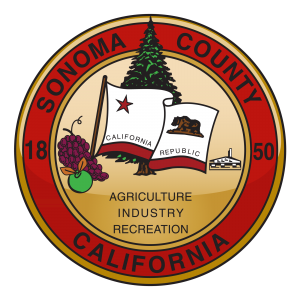Recent Local Updates from Sonoma and Mendocino Counties


Here is a “heads up” about some of the actions taken in Sonoma County and Mendocino County related to cannabis over the past month. Stay tuned for more detailed posts about each of these jurisdictions.
SONOMA COUNTY
Cloverdale
Last month, the City of Cloverdale passed a comprehensive cannabis ordinance to regulate various cannabis uses in the city. The ordinance goes into effect today, October 26. The following types of cannabis operators will be able to obtain a local permit from Cloverdale: cultivation, testing laboratories, manufacturing (both volatile and non-volatile), distributors, retailers (both storefront dispensaries and delivery-only), and microbusinesses. Additionally, on October 24 the City Council passed a resolution adopting a tax rate of 4.5% on all cannabis businesses and also voted to revise the application and permit fee schedule in order to reduce the cost to operators. Applications for every other type of cannabis business besides dispensaries will be accepted soon, however the ordinance requires a complex request for proposals (RFP) and selection process for dispensaries that will take a few months longer. The City Manager said that the RFP for dispensaries will be released on November 14, but that dispensary permits will not be issued until March of 2018.
Sebastopol
On October 24, the Sebastopol Planning Commission voted to approve a Zoning Code Interpretation that would allow a number of commercial medical cannabis uses to exist within the City. The Interpretation would permit laboratory testing, non-volatile manufacturing, infused product manufacturing, delivery-only retailers, distributors, processing, and packaging and labeling in various zones of the city based on similar uses that are allowed there. The interpretation went into effect immediately. An application checklist is forthcoming soon. Sebastopol does not currently have a special cannabis tax.
Sonoma County
The Sonoma County Board of Supervisors voted on October 26 to extend the deadline for cultivators to pay their first quarter cannabis taxes by waiving all delinquency penalties until November 17, or until November 30 for cannabis cultivators who were located in an mandatory evacuation zone during the wildfires earlier this month. More information on Sonoma County cannabis taxes, including tax rates and forms, can be found here: http://sonomacounty.ca.gov/Cannabis/Taxes/
Cultivators who have lost or damaged crops due to the fires may be eligible for an adjustment in the amount of taxes they owe to the county. In order to qualify for a crop loss adjustment, the following elements must be met: (1) the cultivation site must fall within the fire perimeter as determined by the Cal Fire map; and (2) the cannabis must be visibly damaged; and (3) the product must be destroyed to avoid resale (the destruction will be verified by the Department). Growers wishing to take advantage of this should contact the Sonoma County Department of Agriculture/Weights & Measures at (707) 576-2371 to schedule an inspection. The inspection costs $177/hour and there is a ¼ hour minimum.
While the tax deadline has been extended slightly, the deadline to submit penalty relief forms for existing cultivators wishing to qualify for the transition period is still October 31, 2017. More information about the transition period and penalty relief application can be found here: http://sonomacounty.ca.gov/Cannabis/Permits/Temporary-Code-Enforcement-Penalty-Relief-Program/
Santa Rosa (UPDATE AS OF 11/09/17)
The City of Santa Rosa has been a leader in Northern California in terms of regulating medical cannabis activities, and now it is vying to become one of the leaders in regulating adult use cannabis activity as well.
On November 9, the Santa Rosa Planning Commission agreed 5-0 to include adult use cannabis businesses in its comprehensive cannabis ordinance, which will be considered by the City Council on December 12. This is exciting news for anyone who’s been keeping an eye on the 5th largest city in the Bay Area. The city’s Planning Department and Medical Cannabis Policy Subcommittee have been working on developing the comprehensive policy for quite some time. If the Santa Rosa City Council approves the Planning Commission’s recommendation, the new policy would go into effect no later than February 2018.
The comprehensive draft ordinance would set up a permitting process for cannabis cultivation, manufacturing (both volatile and non-volatile), testing, distribution, retail, and microbusinesses. Personal cannabis cultivation would be exempt from the permit process, provided that the city’s guidelines for size and plant count are followed. Santa Rosa voters already approved a cannabis business tax during a special election in June 2017. The tax rates are as follows: for cultivators, 2% of gross receipts or $5 per square foot of canopy; for manufacturers, 1% of gross receipts; for distributors, 0%, and for medical retailers, 0%.
The City of Santa Rosa’s cannabis webpage can be found here.
MENDOCINO COUNTY
Willits
The City of Willits passed a new comprehensive cannabis ordinance on September 27, which will go into effect on October 28. The ordinance would allow a number of different types of medical cannabis operations to exist in the city, including cultivation, processing, laboratory testing and research facilities, manufacturing (both volatile and non-volatile), infusion, distribution, packaging, and retail. A selection process for dispensaries/retailers is laid out in the ordinance, as well as application requirements for other cannabis businesses. The permit fee schedule was considered by the City Council on October 25. The initial and renewal permit fees will be scaled based on the type of business (and also based on size for cultivators).
Mendocino County
On October 17, Mendocino County passed a comprehensive ordinance allowing the county to issue permits for numerous types of commercial cannabis uses other than cultivation, which is already included in a separate county ordinance passed earlier this year. The new ordinance—which includes both medical and adult-use operations—will make local permits available for processing, manufacturing, testing laboratories and research institutions, retailers, distribution, and microbusinesses. It will go into effect on November 16. The ordinance describes the application procedures as well as operational requirements. There is a special cannabis tax in Mendocino County, which for the current year is 2.5% of gross receipts for cultivators (some minimum amounts apply), 5% of gross receipts for dispensaries, and a flat rate of $2500 for other commercial cannabis businesses.
